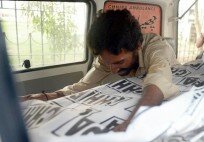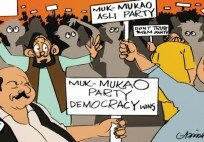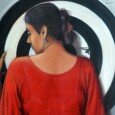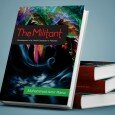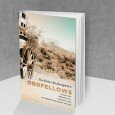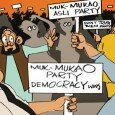By A Rahim Khan –
Interview with actor, writer, director Osman Khalid Butt
The old proverb goes, ‘a jack of all trades, a master of none’ but while its progenitor may have been taking a stab at some erstwhile contemporary, the polymath, the polyglot, the virtuoso all stand as testament to individuals capable and consummate at wearing many hats.
Actors more so than other performers are blessed with a variety of mediums in which they can employ their art, lending their talents to both the stage and the screen. Thespian greats such as Ustinov, Olivier, Gielgud and Guinness were as at home on screen as they were in front of an audience and the lagniappes of television and now the internet have afforded actors outlets like never before.
Islamabad based Osman Khalid Butt is just such an actor with a resume boasting performances in plays like Avatar Superstar and Let Me In, films like Slackistan and Siyaah, a slew of internet shorts and now steadily taking television in his stride with a number of soaps and dramas.
In between his busy shooting schedule, with one foot in Islamabad and the other in Karachi, Osman sat down with Pique to discuss his career, the challenges of the industry and what he has in the pipeline.
You’ve acted in pretty much every medium there is, has this been a personal desire for versatility or more the demands of the industry?
Theatre, my video-blogs and the little contribution I’ve made in film were both personal choices based solely on creative expression, as was the drama serial ‘Aunn Zara’, which was the first script director Hissam Hussain shared with me. I’ve always been fascinated by the performing arts; the year I made my theatrical debut I branched out into assistant direction, choreography and writing, this was before I had any plans of forming my own production company.
Ads and television are a great balance of diversifying oneself as well as sustaining oneself financially. However, I’d like to think that I’m particularly choosy about whatever project I agree to; the paycheck always come second to content. Television has helped (and continues to help) mature me as an actor, specifically in controlling my expressions…coming from a theatre background it becomes harder to reign in the character-invading-your-every-pore philosophy we adopt for the stage.
Looking at your career, whether producing your own plays or internet shorts, one gets the feeling that you made things happen for yourself, would you agree? And if so would you attribute this to your own person or more so circumstance?
I’d attribute it to both. The theatrical plays I produced and directed were pure labours of love. I never imagined the video-blogs and sketches would take off the way they did. In fact, the very first (on the PTA ban) was supposed to be a one-off, something I continued doing after receiving some amazing feedback.
As a person, I find myself always looking ahead; I think I’m at my creative best when I’m conceptualizing my next project. It’s the most infuriating part of the process, but also the most exciting.
From your body of work, we’ve seen creative stuff in your own endeavours but then more mainstream efforts in commercial projects, do actors, directors and artists on a whole have to make this trade-off when they hit the proverbial big time?
Not necessarily, no. Just because a project is commercial doesn’t necessarily translate into a loss of quality. Take ‘Aunn Zara’ for example; it’s a subversive spin on the meet-cute trope; though it has many traditional elements, the script, characterization and direction all came together seamlessly. It’s one of those rare projects I’ll take with me to the grave [and this includes my theatre work]. One of my upcoming plays deals with the complex relationship between father and son; the other has an entire angle on terrorism. Of course, there are limitations on TV and film as opposed to, say, theatre which is much bolder in its content, but so far, I’m not complaining.
You recently won an award for your screenplay for Siyaah, did you think the film, a horror one at that, would be so well received locally?
Quite frankly, the award still feels so surreal. ‘Siyaah’ was a love letter to the horror genre but was also written bearing in mind that this was an independent production. The key was casting Mahnoor Usman, nine at the time, who I had the pleasure of coaching. She was magnificent in her portrayal of Natasha.
I consider its award a triumph for indie cinema.
Your career has gone from strength to strength, what do you attribute this to?
Patience, and the hard learned lesson of always picking myself up whenever I fall, trite as that might sound.
We’re quick to congratulate ourselves, lauding such films as Bol and Waar, but beyond the local market, these films don’t garner the same attention abroad, when do you think we’ll see films or television from Pakistan that’ll actually make waves?
Very soon, actually. Some of Pakistan’s finest television plays are being telecasted in India, including ‘Aunn Zara’ on a new channel launched by ZEE: Zindagi. The promos themselves have garnered much attention and I’m getting some truly wonderful feedback on AZ from across the border. I’ve heard producer/director Dawar Mahmood plans on taking the Anwar Maqsood-written ‘Pawnay Chaudah August’ on a world tour.
Theatre from Pakistan has already made waves internationally, with productions having been performed at revered festivals and venues including the Edinburgh Festival (The Fringe) and The Globe, London (‘Taming of the Shrew’, which was Pakistan’s entry in the Cultural Olympiad preceding the 2012 London Olympics; a play I was fortunate to be part of). I think with so many diverse genres coming up in film, with some targeting the festival circuit, we’ll soon have a strong film and performing arts identity resonating the world over.
Is it hard for an actor to make it in Pakistan? Being from Islamabad has this been even more pronounced?
I attribute whatever fame I got on a national level to my video-blogs on YouTube; a great avenue for aspiring actors, musicians and artists to get recognition that sadly still remains banned. I suppose finding good work is always hard, but now with television production companies branching out to Islamabad, filmmakers are on the lookout for new talent, you could get noticed if you put yourself out there.
Where do you think our performing arts presently stand?
Perhaps even more so than acting, I’ve always wanted to write and choreograph for film. The fact that I got to check one of those off my bucket list and the second one is a quite tangible possibility speaks volumes about how much more opportunity there is today than, say, 5 years ago.
Having said that, while film and TV are flourishing, it’s rather sad to see a dearth of theatre in Islamabad, where once ours were the most ambitious and diverse projects. It’s harder to get sponsorships and corporate backing for theatre now, but the very fact that we have to rely on private limiteds for funding is…sad, really.
Don’t you feel that the arts here, be it theatre, film or TV, tend to stagnate, that is, that they fall into a rut? If it’s a documentary, it has to be about what’s wrong with the country, if it’s a TV drama, it has to be your typical soap. Do you think we’ll ever see different creative output?
I do believe there’s a fascination with formula, particularly a tried-and-tested one. However, there’s also a lot of experimentation: in Islamabad, for example, we saw it as early as 2006 in Tulin-Khalid Azim’s adaptation of ‘Someone Who’ll Watch Over Me’ (re-titled ‘Freedom Bound’) at a time where musicals reigned, here was a minimalistic tragicomedy about three hostages.
In the 2014-2015 lineup in film, we have everything from romance to film noir to biopics to sheer masala entertainers. Television is the trickiest because some of the content is focused solely on the ratings-game, but scratch its formulaic surface and you’ll find some fantastic, cutting-edge work.
We often talk about the revival of our arts, but its often just talk, do you think we’ll actually see a renaissance?
I think we’re witnessing one as we speak, especially in film. One look at the trailers of ‘Mah-e-Meer’, ‘Jalaibee’, ‘3 Bahadur’ and the likes and you can see that we’re leaving the gandaasa truly behind.
Tell us about some of the current projects you’re working on? Any projects of your own?
I’m currently shooting for two drama serials: ‘Goya’ for ARY Digital and ‘Munkir’ for GEO Entertainment. After having gone through and politely declining several scripts that recycled the same brooding hero bordering on an Oedipus complex, I’m grateful these two plays (written by Mohammed Ahmed and Zafar Mairaj respectively) bring something completely new to the table. It has been a challenge portraying both characters and I’m excited to see what our audiences make of them.
I’m also conceiving a series of short films I plan to direct late August, Insha’Allah. Themes of a serious nature this time around.
The writer is a journalist based in Islamabad





















